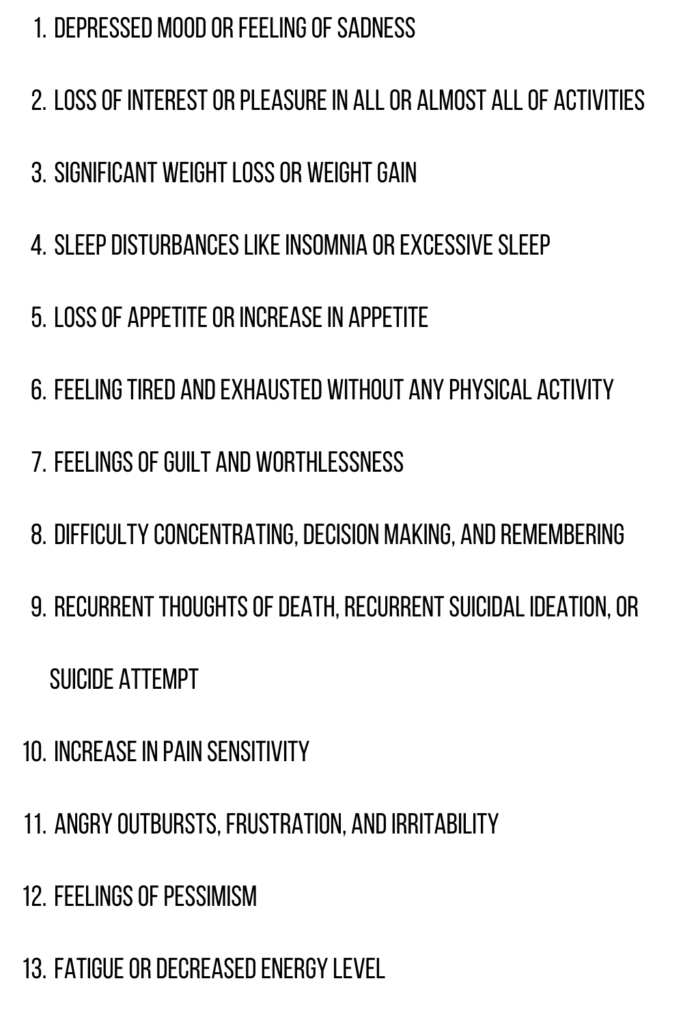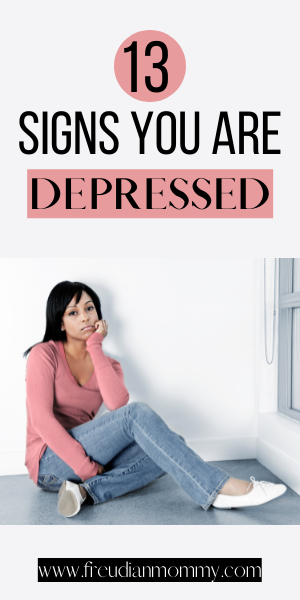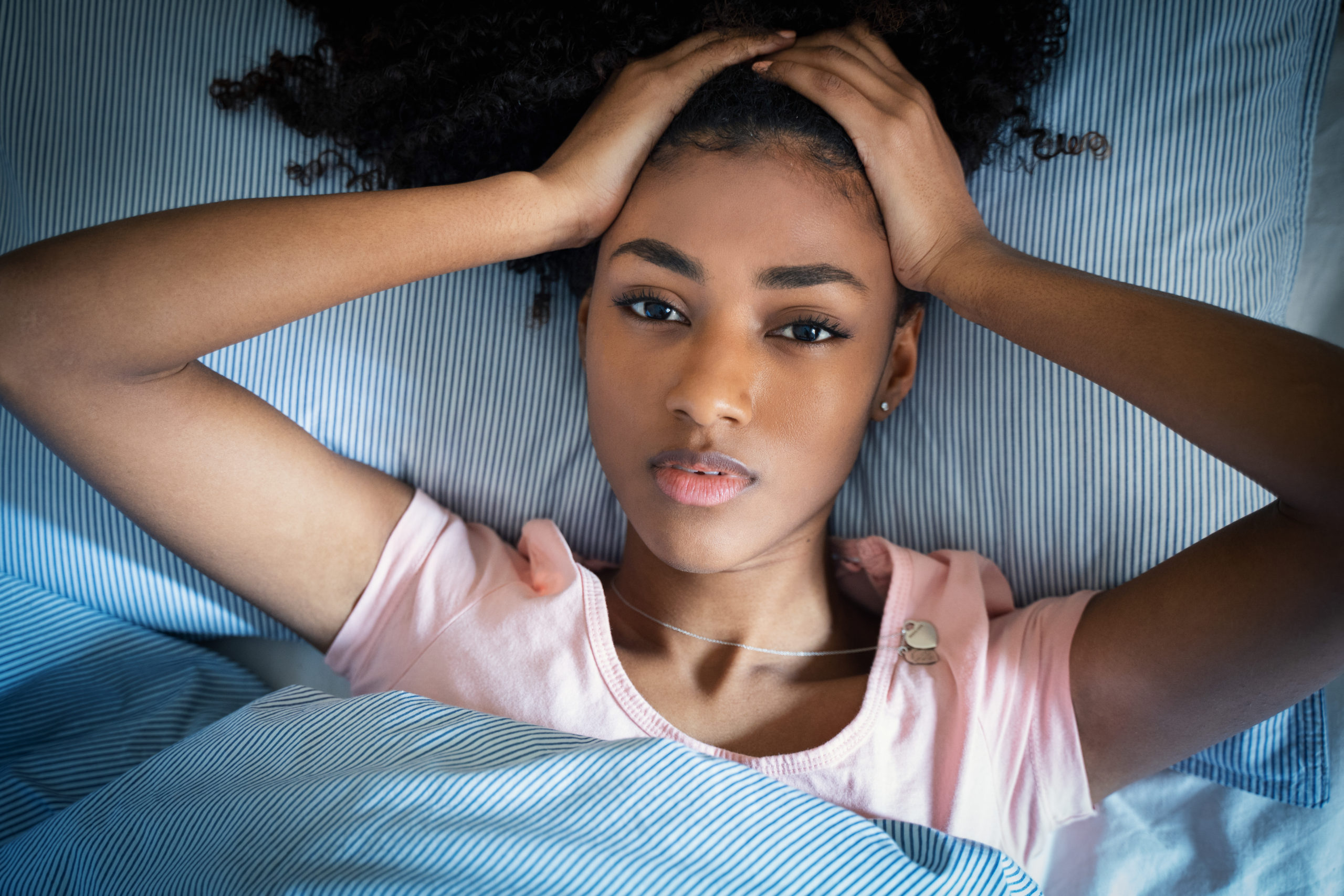Coping with Major Depressive Disorder
It is perfectly normal to experience sadness once in a while. Feeling sad is a natural emotional human response to grief, illness, worry, and other unpleasant life challenges. You are entitled to feel sad when you face significant life stressors.
However, the feeling of sadness should be temporary and fade away with time or when life starts to get back to normal. When the feeling of sadness is constant, overwhelming, and begins to interrupt your daily activities, it may be a sign of Major Depressive Disorder (MDD).

What is Major Depressive Disorder?
MDD affects your overall mood and can become a significant hindrance in achieving your everyday goals, such as working, going to school, and socializing with family and friends.
Signs and symptoms of Major Depressive Disorder include:

Diagnosis of Major Depressive Disorder
If you experience five or more of these symptoms, one of which must be depressed mood or loss of interest or pleasure in activities that you previously enjoyed, most of the day, or almost every day, for at least two weeks, you may have depression. The symptoms should also not be attributed to a medical condition or the use of a substance.
Some people may not show all of the above signs, and some may show extreme symptoms.
Who gets Major Depressive Disorder?
It is estimated that over 20-25% of adults are at the risk of developing Major Depressive Disorder. Women have twice as many chances of developing MDD than males. Hormonal changes during pregnancy, miscarriage, and menopause is a contributive factor. Women also tend to seek treatment more often than men. Major Depressive Disorder in men often goes undiagnosed because men are less likely to seek medical help.
What Causes Major Depressive Disorder (MDD)?
Depression is caused by a combination of factors, including genetic, psychological, environmental, and biochemical.
Genetics:
Depression can run in families. You are more likely to develop depression if a blood relative has depression.
Psychological:
People with a history of mental health disorders such as anxiety, PTSD, bipolar, and eating disorders are more likely to develop depression.
Individuals with low self-esteem are also more like to develop depression.
Environmental:
Persistent exposure to stressful situations such as abuse, neglect, violence, and poverty increases one’s risk of developing depression.
Childhood trauma also puts you at risk of developing depression.
Biochemical:
Hormonal changes in the body can trigger depression as seen with women weeks or months postpartum.

Treatment for Major depressive Disorder
Despite all the negative symptoms of depression, the good news is that Major Depressive Disorder is treatable with proper medical help. Certain medications and psychotherapies are effective in helping to treat MDD. Individuals with MDD show many signs and symptoms that may help with diagnosing the Disorder.
MDD or clinical depression can become a debilitating mental illness if it goes untreated. Health care and mental health professionals recommend two modes of treatment for MDD. One involves prescribing certain medications, and the other is psychotherapy.
Anti-depressants:
Medical professionals prescribe certain anti-depressive drugs like fluoxetine and citalopram. These are selective serotonin reuptake inhibitors that break down serotonin in the brain. This hormone is often called ‘the happy hormone’ and is responsible for mood-boosting and regulating healthy sleep.
Tricyclic anti-depressants are prescribed when other medications don’t seem to work. But they usually come with a side effect, which is why it is minimally used in treatment.
Psychotherapy:
Psychotherapy, also known as talk therapy, is recommended in treating MDD. Different types of psychotherapies can be used to treat MDD. However, the kind of psychotherapy used depends on the severity of symptoms, personal preference, etc.
Mental health professionals generally utilize cognitive and interpersonal therapies for MDD. Group therapy, where the individuals share their experiences with other people suffering from clinical depression, can also be used.
Coping with Major Depressive Disorder
Lifestyle changes can dramatically help decrease symptoms of depression.
Physical activity:
Exercising causes the release of endorphins in your body. Endorphins are responsible for lifting your mood. You don’t need extensive exercise, but taking a walk can help.
Engage in your favorite hobbies:

One of the significant symptoms of MDD is losing interest in activities you used to enjoy. It is challenging to stay motivated with this Disorder; however, doing things that you enjoy and keeping yourself busy can help.
Self-Care:
Pessimism, gloom, and doom are features of depression. Because of this, it can be challenging to be motivated and focus on taking care of yourself. At times, even a simple task like taking a bath can look tedious. However, making an effort and taking this small and simple step toward self-love can be a considerable step in coping with MDD.
Support System:
Before you were diagnosed with depression, you had people who loved and cared about you. And they STILL love and care about you despite the fact that you have depression. A downfall of having this disorder is that you often think you are a burden to family and friends, leading to isolation. It is good to understand that you are not a burden and your family and friends want to be there for you if you will allow them to do so.
Concluding words
The word depression is often thrown around without any thought, such as “I feel so depressed today.” But the reality is that depression can be a complicated, disabling, and debilitating disorder. People who have Major Depressive Disorder don’t usually inform people that they have depression. They are often isolated and try to hide their struggle with depression.
If you or your loved one suffers from Major Depression Disorder, seeking medical help is the best way to ensure you are receiving the correct treatment. MDD is a serious illness and may be life-threatening if suicidal thoughts become overwhelming enough to become suicidal attempts. However, with the right efforts, it is highly treatable.
The way to combat depression is to know yourself, familiarize yourself with the signs and symptoms of depression, and know when to reach out for help.
It is important to follow up with your primary care provider or licensed mental health provider as depression can lead to suicidal attempts if left untreated.














This is a great post! I don’t think a lot of people who have depression realize that they have it. It is great to get help when you need it!